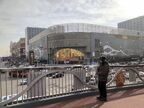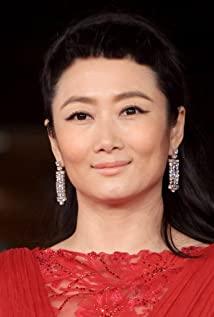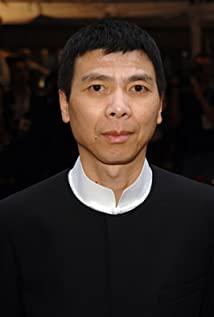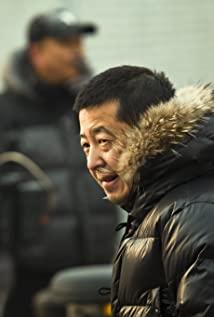The Chinese name of the film is "The Children of Jianghu". According to Jia Zhangke, there are three reasons behind it. First of all it has something to do with director Fei Mu. After he finished filming "Twenty-Four Cities" in 2010, he wanted to make a historical documentary about Shanghai, so he went to Hong Kong to interview the heroine of "Small City Spring" (1948), Ms. Wei Wei, and learned from her that Director Fei had one Preparatory filming of the posthumous work around 1949 (later on the screen by Zhu Shilin and Qi Wenshao (screenwriter of the original film) in 1952). Although Jia Zhangke said in an interview that adopting the same title was to pay tribute to Fei, he later confessed in the "Cinema Manual" that he "forgot the story of the movie, but remembered the title.'Children' It’s easy to understand that the word'jianghu' may be difficult to translate into a foreign language. Jianghu means a sinister adventure, complicated emotional experience, a world outside of order, and love outside of rules. What about making movies? I think we are also Jianghu. Sons and daughters.” This also leads to the latter two reasons, which are related to Jia Zhangke's current situation and past experiences. On the one hand, Jia Zhangke believes that Jianghu is a marginal society outside the normal social order, and the independent films he insists on shooting have the same status in the industry; on the other hand, the reason why the title is more unforgettable than the story itself , Because these words touched his nostalgia and understanding of the past-he had many elder brothers in his childhood life, and he was also influenced a lot by Hong Kong and Taiwan movies at that time, and he has always had a martial arts plot.
The misunderstanding caused by Jia Zhangke's explanation is that the focus of "Jianghu Children" is "Jianghu", but in the actual film narrative, children and Jianghu are two mutually supporting threads. Jianghu and children respectively express two sets of logic with pros and cons, and the two sides will destroy and regenerate in the other. Rivers and lakes are expressed as righteousness when they are in order, and profit/force when they are out of order. If you are not alone in the arena, then you must have your own gangs and comrades in the arena, and there are internal (internal divisions, old and young) and external points (outsiders are not necessarily enemies, such as the captain of the police team in this film. He was assassinated in the second brother. During the two visits by Brother He Bin in his homecoming, he appeared to be his own in his clothes, but his voice was deliberately very righteous). Therefore, righteousness will also be modified as loyalty and chivalry/zhangyi respectively. In the film, the disintegration of the rivers and lakes started from these two aspects. Brother Bin himself is a righteous person, and after the second brother’s accident, he and Qiaoqiao gave a lot of money to the second sister-in-law, so he naturally expected that his people would get together because of loyalty, so he took his brothers and carried him back. According to "its profit breaks gold", sit and watch "Heroes". And Jia Zhangke's deconstruction of these two images through images reveals the reason why the rivers and lakes in his mind are gradually becoming out of order. "The Book of Changes · Xi Cishang" says that "two people are in the same heart, it is profitable to cut gold; words of same heart, its smell is like orchid", among them, "li" expresses sharpness, and the smell of orchid is one outside and one inside, both are the result of concentricity. This is exactly what Binge wants to build for himself. As a result, after Brother Bin was imprisoned, the tree fell and scattered. The essence of the profit breaking the gold has become the intersecting of the profit and the death of the profit. As for the death of the second brother, Brother Bin was hacked twice, all because of the newcomer's coming up. Their methods are too savage, relying purely on brute force, without rules, just like real estate that grew crazily back then. So at the end of the film, when Brother Bin ran away, this stubbornness seemed to echo Xiao Ma (the background music that appeared many times in the film was exactly what Ye Qianwen sang for "Blood Drunk"). He has to fight for a sigh of relief and take back what he has lost, but in a river and lake where internal benefit is combined and external power intersects, he has lost the basis for establishing order.
Brother Bin, as a specific gang, is opposite to other gangs; all the gangs together form the underworld, and the opposite is the white way; the underworld and the white way together constitute the society, and the opposite is It's the family. Jia Zhangke did not interpret the story of Lao Pao'er making rules for Xiao Pao'er like the other director in the film, nor did he allow people in the rivers and lakes to maintain that it should be a white way as he likes Huang Feihong and Xiao Ma. These are not the place of Jia Zhangke’s life experience and imagination at all. He is a man who returned to his hometown after trying to throw himself from a small county into a city in the wild and crazy age. His nostalgia and sorrow, the injuries he suffered in the arena, may only be loved, understood and comforted in family/love. Jia Zhangke said that while shooting a movie, he not only reviewed various images that he had shot with different equipment over the past ten years, but also gradually reflected on his own experience and understood the people around him. According to what he said, we can see that on the one hand, time is reflected in the shooting technology, from digital images, to film, handheld, webcast, and real-time monitoring. On the other hand, it is reflected in the growth of the role of Qiaoqiao. Specifically, It is the ingenious growth that Jia Zhangke understands (in contrast, there are only two rhythms of order and disorder in Bin Ge's view of time, like a pendulum, just like the past and the present in Jia Zhangke's own images).
Qiaoqiao represents the context of children. When it is in order, it is expressed as love, and when it is out of order, it is expressed as desire. Understanding the process of this dimension going out of order is the key to understanding the last part of this movie. According to Brother Bin’s explanation in Fengjie, he was abandoned by the younger brothers after he was released from prison, so he understood his relationship with Qiaoqiao in the same way. Maybe the collapse of the rivers and lakes made him consciously abandoned by the world. In the abstract and strong sense of withdrawal, he has been unable to experience the difference between a coincidence who has been in jail for five years and a group of younger brothers who abandoned me after being in prison. the difference. He wholeheartedly wanted to break out another world in the arena, and then fight back to get back what he had lost. So when she went south to find her husband for love, she didn’t know that she was facing a big brother who could only go to Yibei, nor did she know that because she had never set foot in the rivers and lakes and was never lost, so she was not taken. The need to come back made no sense to Brother Bin (of course, it made sense later, because after Brother Bin had inconveniences, she was the only person who Brother Bin felt would not laugh at him). If it was Ma Zai who had shot for Brother Bin and asked him to return home at the moment, the situation might be completely different, because it shows that his arena is still there. Similarly, Qiaoqiao didn't understand Brother Bin at first. She neither agreed with the truth of the arena, nor was she willing to wander in the arena. Her concern was family, marriage and supporting the elderly. So when Brother Bin held Qiaoqiao’s hand in Fengjie and said that this hand saved me, the key to Qiaoqiao’s disappointment may not lie in his holding the wrong hand, but because Brother Bin responded to her love in a righteous way. , Which is not what she wants at all. Therefore, Qiaoqiao's love was doomed by Brother Bin's righteousness. The protagonist’s seemingly intertwined destiny is actually bifurcated, and the cracks buried by wind and sand on the land of Sanjin are exposed in the rain in Sichuan and Chongqing.
In the past in Datong, Qiaoqiao’s relationship with people in the arena was determined by Brother Bin’s status in the arena. In other words, she did not have the experience of independently trespassing in the arena. Taking the above rainy night as a watershed, Qiaoqiao’s growth is divided into two stages, and it has gone through twice before and after nothing. The development of the plot is related to the transformation of passion into desire. First of all, because they don't understand the dangers of the world, the wallet is stolen, leaving nothing in the property. From then on, Qiaoqiao was thrown into the world (maybe because of the loss of her ID card and money, she could not find a job in the normal way and use her own labor to survive, and this is the key to a person's life in Baidao. Of course, Time is short, and she is not ready to find a job.). It seems that in Jia Zhangke's eyes, Qiaoqiao is the swordsman. He said that Zhao Tao used the bottle of water as a sword during the performance (so opening the door with a water bottle and toasting with people at the banquet became very rich). But this sword made of water is also used to quench thirst, in other words, to meet the most basic survival needs. So she has two dimensions in her arena. On the one hand, it is to satisfy her own desire to survive. On the other hand, for this purpose, she must use the desires of others and the weaknesses shown by it (whether it is cheating money or driving away). Moroccan). The transformation from passion to desire mentioned here means that, on the one hand, the ubiquitous desire in the disordered arena replaces true love, just as the pervasive wild power replaces morality. On the other hand, for people who are full of desires, they can only control their desires with desire. Just like for a person who can only understand power, he must first suppress violence with violence, just like Qiaoqiao fired two shots to the sky back then. Therefore, when a person walks alone on an already disordered rivers and lakes, her most basic ability is to perceive the desires of others.
After Brother Bin abandoned Qiaoqiao, she experienced emotional nothingness. This kind of nothingness does not mean that she has lost the ability to feel, but that she has lost the object of emotion, so emotions are liberated into fragile and blind desires. It's not that Xu Zheng really deceived her, but at this time she chose to let herself be deceived by Xu Zheng. But later she became sober, and she no longer deceived herself, because she knew that she could no longer entrust herself to anyone.
These two coincidence encounters correspond exactly to the two ways of wandering alone in the rivers and lakes in traditional martial arts films: one is to know the world well, relying on a keen sense of smell to eat and eat in the rivers and lakes; the other is to be trapped by love, like a wandering soul. Wandering on the rivers and lakes (the former is like Wei Xiaobao, the latter is like Li Xunhuan. Of course, Zhao Tao interprets the ordinary people in the rivers and lakes at the moment, and naturally does not reflect the demeanor of those two). In both cases, Qiaoqiao didn't completely lose herself. Jianghu, because she didn't mess around and kept the bottom line between others and herself, it was "breaking" and "out". This was the next scene.
Qiaoqiao stepped out of the train to see the flying saucer, Jia Zhangke said, it meant that she had grasped herself in a complete sense of loneliness. Using magical reality to draw the flying saucer was to show that she could already communicate with the world at this moment. Understanding Qiaoqiao’s scene on the platform is the key to understanding the latter, directly related to how we understand the order of the rivers and lakes re-established in the Mahjong Hall after she returned to her hometown. Unlike Brother Bin, who is doing the pendulum movement between order and disorder, Qiaoqiao no longer feels that he is being thrown out at this moment, but that he is in control of his own destiny. At this moment, there are actually multiple possibilities unfolding to her. Even if she decides to stay in Xinjiang, decide to become a monk, decide to go back to find a job, marry a man, etc., it is not surprising, because there seems to be no specific thing in the world that can become her. Fetters. Everything depends on her own will. But she decided to go back and rebuild a river and lake, something that she has never understood and rejected (the possibility that I deny is that she is not good at playing on the white road because she has served her sentence, but you must know that even on the underworld, She is not just to live, to find food, because regardless of black and white, casually finding someone to marry and other labor-saving methods are the most suitable for this need. But she now has an industry, and she is obviously in the underworld. It takes all kinds of abilities to maintain this industry. Since she has nothing to dispute, it means that she still has something to stick to and recognize after being alone). This is interesting, what is her motivation? Of course, from the perspective of dramatic conflict, we can understand that if the issue to be explored is the possibility of re-establishing order (rather than showing the fate of being a small individual who simply obeys disorder), the plot needs to go back by coincidence, but it happens It is such a problem that requires us to understand her, otherwise such a possibility is empty talk.
Because Jia Zhangke said that she understood Qiaoqiao from a male perspective. Although she plays the most important role, this is not a film from a female perspective. So one possibility is that the director’s nostalgia for the previous order was achieved through Qiaoqiao. In other words, Qiaoqiao actually assumes the moral ideals of men. If this is the case, this place will be very weak, it is better to find a horse to replace Qiao Qiao to release the gun. If this kind of wishful thinking is to make sense in the female experience, it cannot be to gain oneself in absolute loneliness at the platform. On the contrary, it is to let oneself in the nostalgia for the lover who is gone but cannot let go. Become your lover. Of course, this is not narcissism, but it means that oneself should take on the role of the previous lover and bring his spirit back to life in his own body. Because Jia Zhangke has always said that this movie is related to his reflection on his own life in recent years, I suggest that he work harder to understand why someone does so much, whether he wants to have his own business or for you. . .
Then it comes to the biggest problem of the film. After Qiaoqiao went back, how did he gather this arena again? Because as mentioned earlier, this river and lake collapsed due to benefits and forces, both internally and externally. If Qiaoqiao (father dies, Bin brother abandoned, alone, female) wants to establish a new order, he must face these two problems. I think this may also be the most important issue for Jia Zhangke, who has always cared about the climate of the world. Jia Zhangke himself said that the role of Qiaoqiao is not a hero, but just sticks to the most basic morality and bottom line of being a human being (he also understands Qiaoqiao's reasons for taking care of Brother Bin. Because of pure morality, she rejected Brother Bin. Hold hands and don’t care about Lin Jiayan’s news). If so, there is actually no possibility of overcoming the previous problems, which can be seen to some extent from the film: Compared with the former brother Bin’s momentum, coincidence is more like a basic law boss, and the younger brother is a worker. Get your salary there. In fact, there are two other possibilities for being let go. One is that Qiaoqiao really gathers a group of people by virtue of morality; the other is that Qiaoqiao connects righteousness from the perspective of love. Both of these are difficult and difficult to climb to the blue sky, but there is no way. We are now in a state of going to hell without going to heaven. Nothing can stop in place. As for the former possibility, it is conceivable that by coincidence, a huge sacrifice must be made and the conscience in people's hearts will be awakened. We, in this era, basically do not believe this. We have no confidence in our own courage and the conscience of others. The second possibility is even more difficult. In the past, love for children is usually considered to be the reason for the hero's shortness of breath. That is to say, the two are at odds with each other, just like this film shows. But one of the meanings of the movie is to talk about the texture of the possibility to become reality, not just to worry about the insignificance and humbleness of people (he said that the last use of surveillance is a temporary intention. He thinks because surveillance is everywhere. , It turns into an image, and it will be deleted after a month. People can be deleted, very sad.). This is not a criticism, but a deep expectation. But it is a pity that Jia Zhangke seems to just want to criticize in the narrative, rather than rebuild in the criticism, so this film stops at nostalgia and love for the homeland. In the end, what he wanted to express was that in the three foreign names of the film,'jianghu-children' became'interests-desire' (Money & Desire). Love), and no one can be invincible in this jungle state; but even in such a world, the bottom line of human beings can still be maintained, which will not be washed away by the changes in the world (Les Eternels ), the two constitute the fate of all living beings at the moment-when the hurricane advancement since the 1980s is about to die-and the last thing that can be held in this fate: people fall like ashes in the rivers and lakes, but this Ash can be out of silt without staining (Ash is Purest White). But if you can't start from this to unfold a sentimental and righteous world, the hope that can be guarded is no more than the lingering hopelessness, and people are more confused between the two. Jia Zhangke will definitely leave after returning home like Brother Bin, and then go back to the hometown again when they are lost.
(All the above-mentioned lectures by Jia Zhangke are derived from his interviews and (mainly) his exchanges with the audience after the Munich Film Festival.)
View more about Ash Is Purest White reviews











